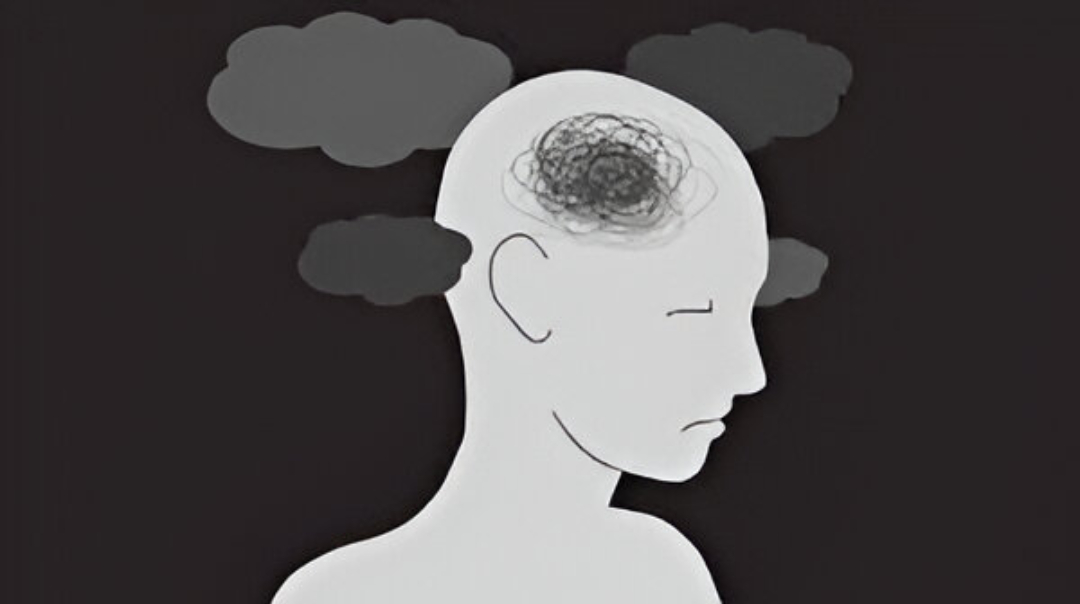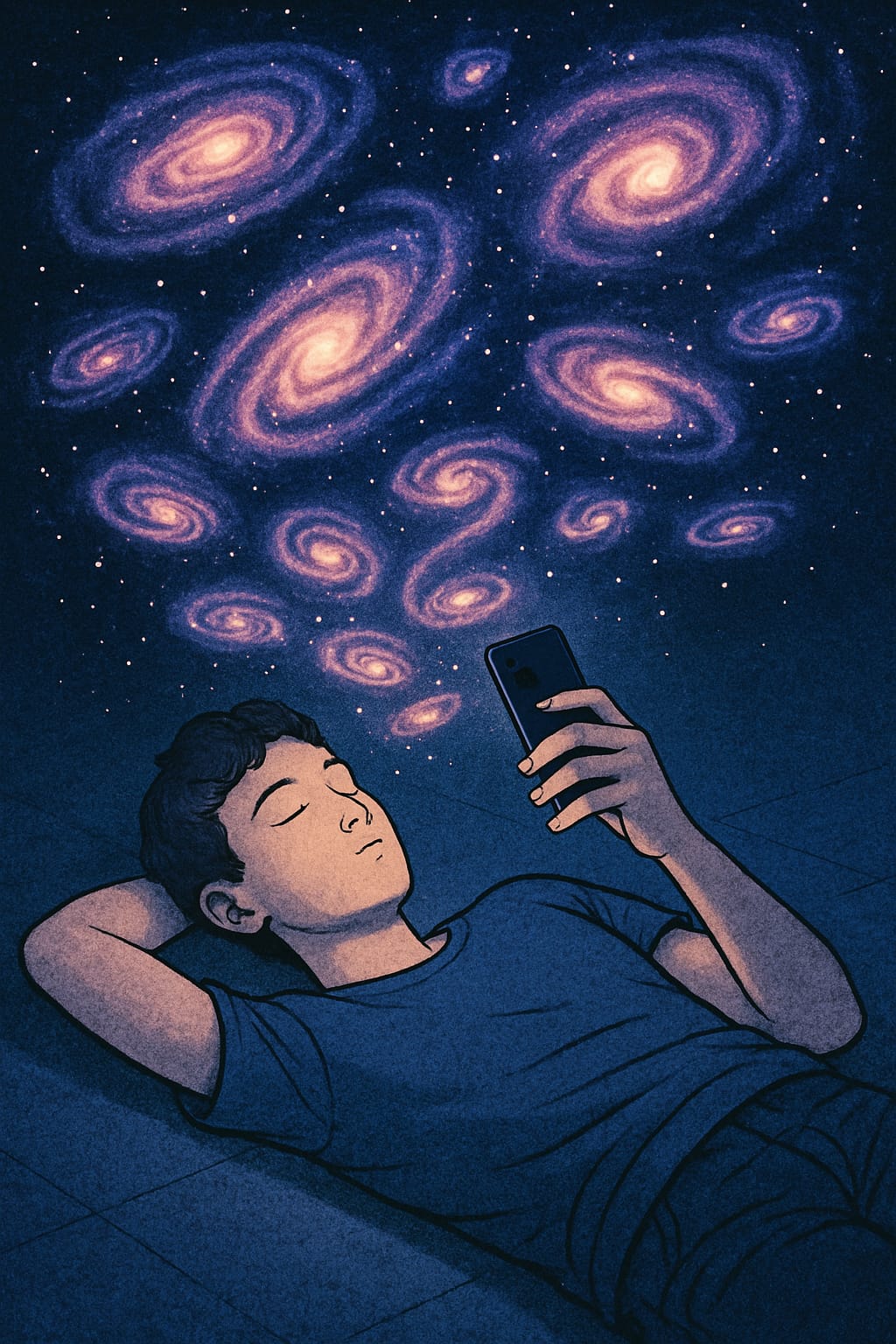
Free Will vs Determinism: Why You May Not Be as Free as You Think
“Most people spend their lives defending their choices, never realizing that the menu was written long before they sat down. True rebellion is learning to read between the options and question the hand that holds the pen.”
Welcome to the grand theater of autonomy, where the spotlight shines on your “choices” while the puppeteers work in the shadows.
We scroll through Netflix menus believing we’re exercising freedom. We debate politics thinking we’ve arrived at our positions through pure reason. We choose our morning coffee like existential philosophers weighing the fate of nations. But here’s the uncomfortable truth: your brain made most of these decisions before “you” even showed up to the party.
The Neuroscience Receipts: Your Brain’s Head Start
Back in the 1980s, Benjamin Libet dropped a philosophical bomb that’s still detonating. His experiments revealed that neural activity begins 350-550 milliseconds before we become consciously aware of our intention to move. Think about that for a hot second. Your brain is already three steps ahead, laying the groundwork for what you’ll later claim as “your choice.”
Recent neuroscience has turned this insight into a precision weapon against free will mythology. Using fMRI technology, researchers can now predict with 60% accuracy which hand you’ll use to press a button up to 10 seconds before you consciously decide. Ten. Whole. Seconds. That’s not a glitch in the matrix; that’s the matrix itself.
The Johns Hopkins crew took it further, tracking people’s brain activity as they made completely free choices about where to focus their attention. What they found? The parietal lobe handles the actual switching, while the frontal cortex does the “deliberation” work. Your sense of weighing options? That’s just your brain’s PR department spinning a story about decisions already in motion.
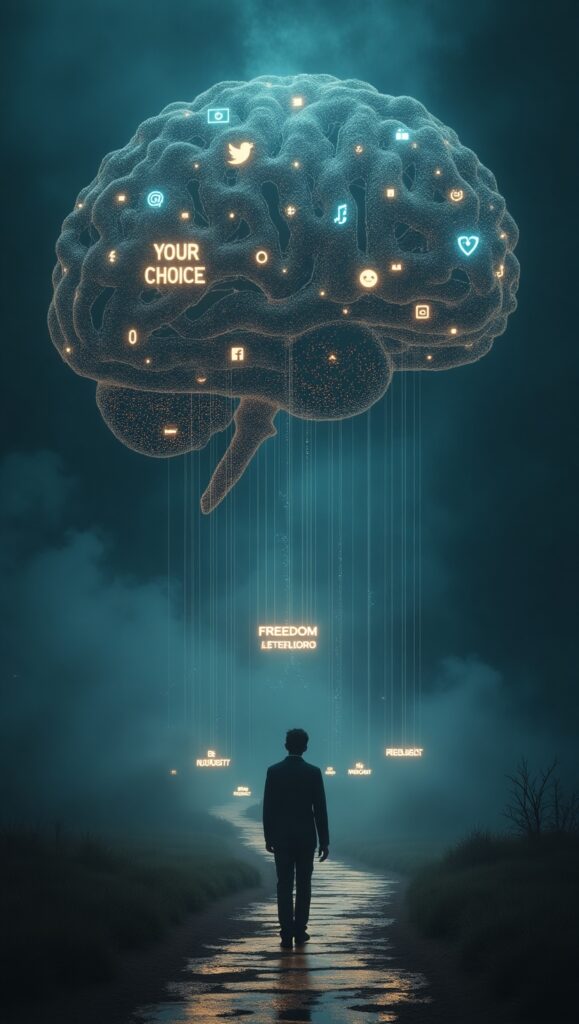
The Determinism vs Free Will Cage Match
Here’s where philosophy meets neuroscience in an intellectual street fight.
Determinism argues that everything, including your thoughts and choices, follows from prior causes like dominoesfalling in an infinite cascade . Your preference for oat milk over regular milk? Thank your genes, childhood experiences, recent TikTok/Instagram exposure, and the specific neurons firing in your reward circuits right now.
Free will, on the other hand, insists you’re the author of your actions, capable of genuine choice unconstrained by prior causes. It’s the difference between being a river (flowing where the landscape dictates) and being a ship (navigating with intention).
The plot twist? Modern neuroscience suggests we’re neither pure rivers nor autonomous ships.We’re more like sophisticated biological algorithms processing inputs and generating outputs, with consciousness serving as the narrator who shows up late and claims credit for the story.
Your Digital Cage: The Algorithm Knows You Better Than You Know Yourself
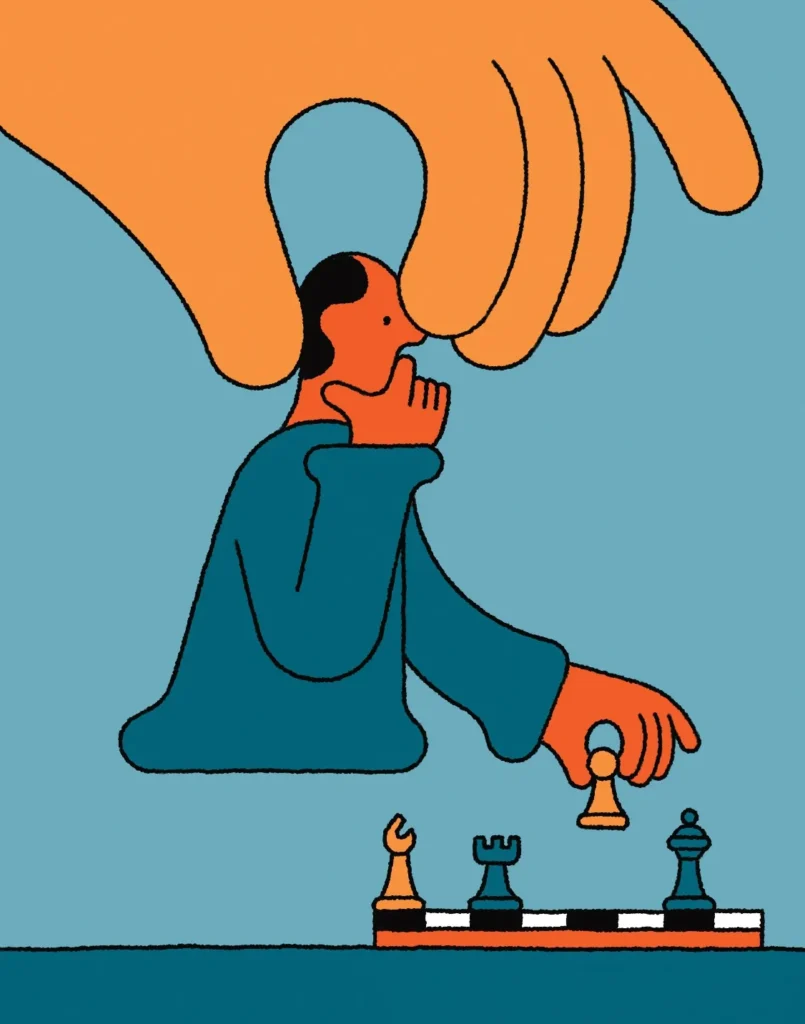
Every swipe, click, and pause teaches the algorithm more about your preferences than you consciously know. Social media platforms use behavioral data to predict and influence your next move with frightening accuracy. That “spontaneous” Amazon purchase? The algorithm saw it coming from your browsing patterns three weeks ago.
The illusion of infinite choice online masks a reality of carefully curated options designed to maximize engagement and profit. You think you’re freely choosing content, but the algorithm is choosing what you get to choose from. It’s like being offered a “free choice” between Door A and Door B while being blind to the fact that both doors lead to the same room.
Research reveals that too many options actually decrease our sense of freedom and increase decision fatigue. The paradox of choice strikes again: more options often mean less genuine autonomy and more reliance on unconscious shortcuts.
The Biology of “Choice”: Genes, Chemistry, and Social Pressure
Your brain operates on chemicals, and those chemicals shape what feels “right” to you. Dopamine drives your reward-seeking. Serotonin influences your mood and risk tolerance. Noradrenaline affects your attention and decision-making under pressure . Pop a different balance of neurotransmitters into your skull, and suddenly your “authentic choices” shift dramatically.
Add social pressure to the mix, and free will starts looking even more mythical. We’re unconsciously influenced by everything from the weather to the last thing we ate to the subtle facial expressions of people around us. Your political opinions? They correlate suspiciously with your parents’ views, your zip code, and your friend group. Coincidence? Unlikely.
The Philosophy of Actually Being Free
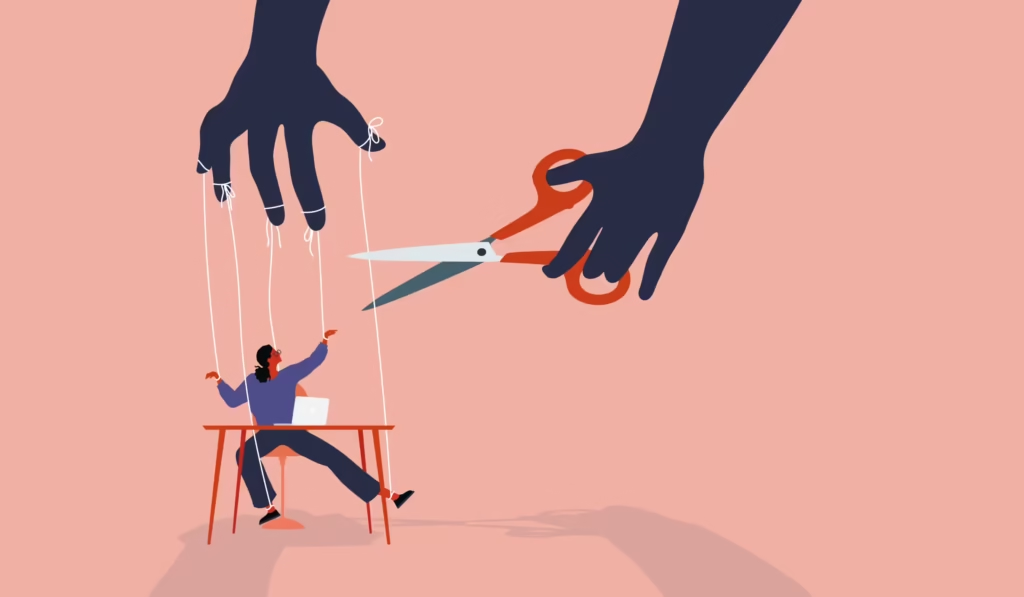
But here’s where the rebellion begins. True autonomy isn’t about making choices in a vacuum it’s about understanding the forces shaping you and consciously engaging with them. Kant had it right: freedom comes from self-governance, not the absence of influence.
Real freedom means:
- Metacognition: Thinking about how you think, catching your biases in action
- Reflective pause: Creating space between impulse and action
- Values clarification: Knowing what actually matters to you beneath the noise
- Pattern recognition: Spotting when you’re running on autopilot
The Uncomfortable Truth About Control
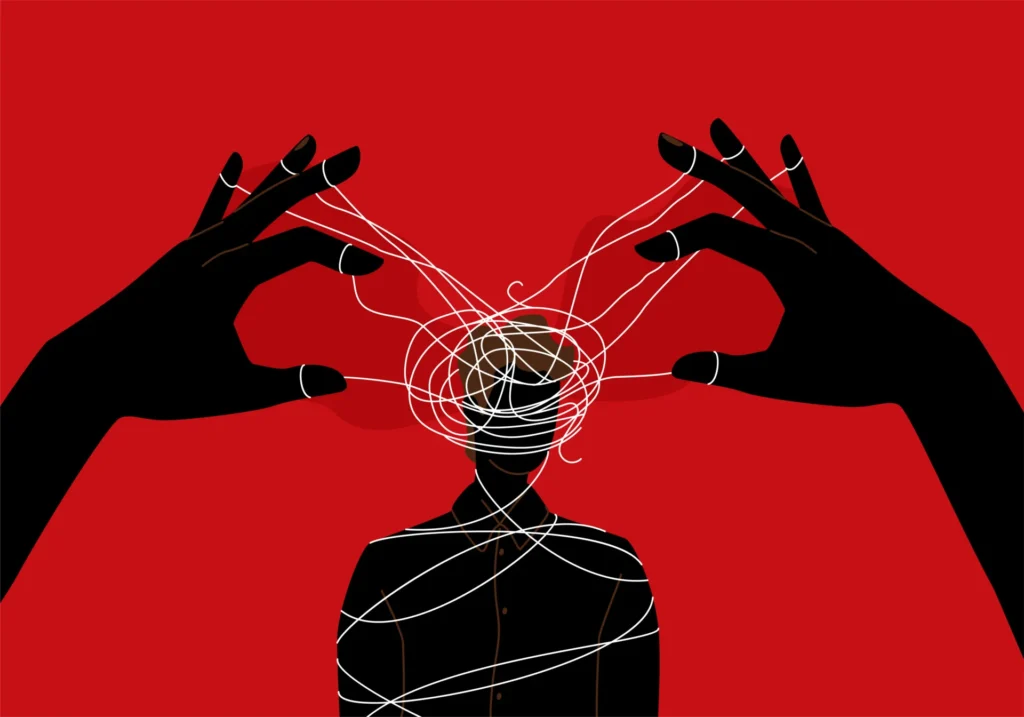
Research on the “illusion of control” reveals something fascinating: we often feel most in control when we have the least actual influence over outcomes . People choosing their own lottery numbers feel more confident about winning than those given random numbers, even though the odds are identical.
This isn’t stupidity; it’s psychological architecture. Our brains are meaning-making machines that prefer the story of agency over the reality of chaos. We’d rather feel like we’re steering a ship toward an iceberg than admit we’re passengers on a vessel with no captain.
Practical Rebellion: How to Hack Your Own Freedom
If you want to maximize whatever free will you actually have, try these reality hacks:
Morning choice audit: Before you reach for your phone, pause. Notice what you’re about to do and ask: “Is this my choice or my conditioning?”
Decision delay: For any choice that feels automatic, insert a 10-second pause. Watch what happens in your mind during that gap.
Influence mapping: Track how your mood, environment, and recent inputs affect your decisions. Awareness is the first step toward agency.
Value archaeology: Dig into why you want what you want. Whose voice is really speaking when you make choices?
The Matrix Isn’t Going Anywhere
The hard truth is that complete free will is probably an illusion, but that doesn’t mean you’re powerless. Think of it like this: you might not be able to choose the weather, but you can still decide how to dress for it.
Your neurons will keep firing before your consciousness catches up. Algorithms will keep nudging your behavior. Social pressures will keep shaping your preferences. The question isn’t whether you’re completely free (you’re not), but whether you’re awake enough to dance consciously with the forces shaping you.
In a world where machines think fast, those who pause, reflect, and choose deliberately hold the real power. Not the power to transcend causation, but the power to engage with it skillfully. The cables are still plugged in, but now you know they’re there. And sometimes, that’s the only freedom that matters.
Next time you feel certain about a choice, try this: pause and ask yourself, “What would I choose if I were a completely different person?” The answer might surprise you.
— Written by Shivam Shukla.

